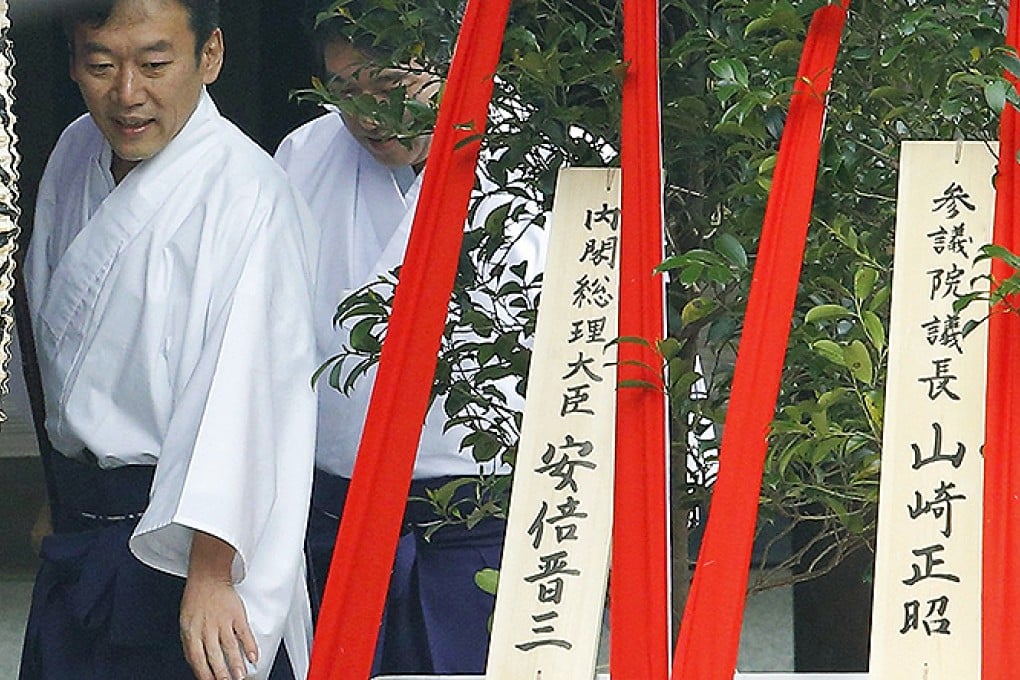New | Japan Prime Minister Abe sends offering to Yasukuni war shrine, but skips visit
Japan’s Shinzo Abe offered a gift to the controversial Yasukuni war shrine on Monday, but reportedly plans to stay away during the spring festival, in an apparent compromise between not angering Asian neighbours and playing to his nationalist base.

Japan’s Shinzo Abe offered a gift to the controversial Yasukuni war shrine on Monday, but reportedly plans to stay away during the spring festival, in an apparent compromise between not angering Asian neighbours and playing to his nationalist base.
The unapologetically nationalist Abe donated a sacred “masakaki” tree to coincide with the start of a three-day festival, a shrine official said, two days ahead of the arrival of US President Barack Obama.
The sending of a gift has been seen as a sign that Abe does not intend to visit, as he did on December 26, sparking fury in Asia and earning him a diplomatic slap on the wrist from the United States, which said it was “disappointed”.
Yasukuni Shrine honours Japan’s war dead, including some senior military and political figures convicted of serious crimes in the wake of the country’s Second World War defeat.
That, and the accompanying museum - which paints Japan as a frustrated liberator of Asia and victim of the Second World War - makes it controversial, especially in China and South Korea, where it is seen as a symbol of Japan’s lack of penitence.